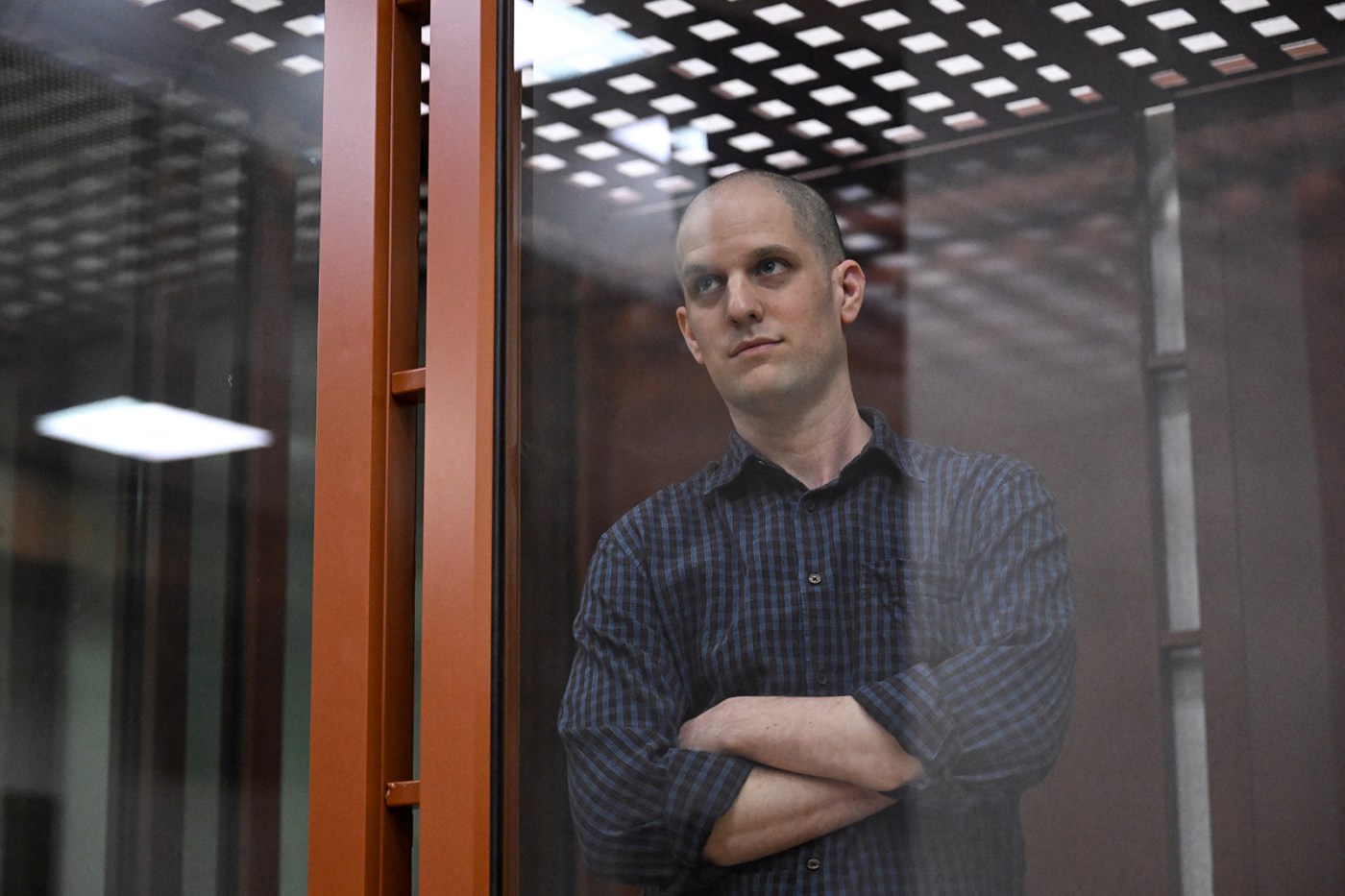
Editorial: Now deter and punish Putin’s hostage-taking habit
In a complex deal brokered by the U.S. government, Russia has freed reporter Evan Gershkovich and 15 other political prisoners in exchange for the release of eight of its nationals in the West — including Vadim Krasikov, a killer especially valued by Russian President Vladimir Putin who was serving time for murder in Germany.
This agreement was, as President Joe Biden said, a striking diplomatic feat and a testament to effective cooperation among the U.S. and its allies. Unfortunately, if the U.S. and its friends take no further steps, it will do nothing to deter, and might very well encourage, future hostage-taking.
The regimes ruling Russia, China, Iran, North Korea and Venezuela all use opaque and corrupt legal systems to advance their interests, and they’ve found “hostage diplomacy” especially useful. It works because it weaponizes the value that Western democracies place on the safety of their citizens.
Gershkovich’s prosecution was also a direct attack on the principle of press freedom. He was arrested and charged with espionage while reporting on Putin’s invasion of Ukraine, a war that has spurred a vicious crackdown on dissent.
In Putin’s Russia, journalism is a crime. The regime has banned dozens of media outlets, including the Moscow Times, a highly regarded English-language newspaper that the Kremlin called an “undesirable organization.” Most foreign media have pulled staff out of Russia; those remaining are at risk of harassment and arrest.
Western governments have no good options when it comes to winning the freedom of nationals seized by hostile states. It would be inhuman not to work for their release and naive to think that refusing to negotiate would act as a credible deterrent.
Still, rewarding hostage-takers puts other potential victims at greater risk — not to mention lets ruthless assassins walk free. In recent years, the U.S. has improved its institutional tools for negotiating and winning the release of its people, led by the State Department’s special presidential envoy for hostage affairs. The successes should be celebrated, without losing sight of the fact that many others have been wrongly imprisoned or forgetting the dangers posed by rewarding evil.
What more can be done? Governments need to be more forthright in warning citizens about travel to offending countries. They should publicize arbitrary or wrongful detentions. Most important, the U.S. and its friends need to cooperate in punishing the perpetrators, including mid-level and local officials. Sanctions, travel bans, asset freezes and other measures should be deployed more widely — and in concert.
The United Nations’ 1979 convention against hostage-taking was written for a different era and is too weak on the question of penalties. It needs to be recast. Such conventions may seem toothless, but note that Russia and other autocracies take the trouble to cloak their hostage-taking with a facsimile of judicial process. That hypocrisy should be more thoroughly exposed and shamed.
The release of Gershkovich and the others is cause for great relief. What these victims have suffered is unconscionable. Their freedom shouldn’t dim the West’s disgust. The U.S. and its allies must hold those responsible for these shameful imprisonments to account.
Bloomberg Opinion/Tribune News Service
Editorial cartoon by Steve Breen (Creators Syndicate)

